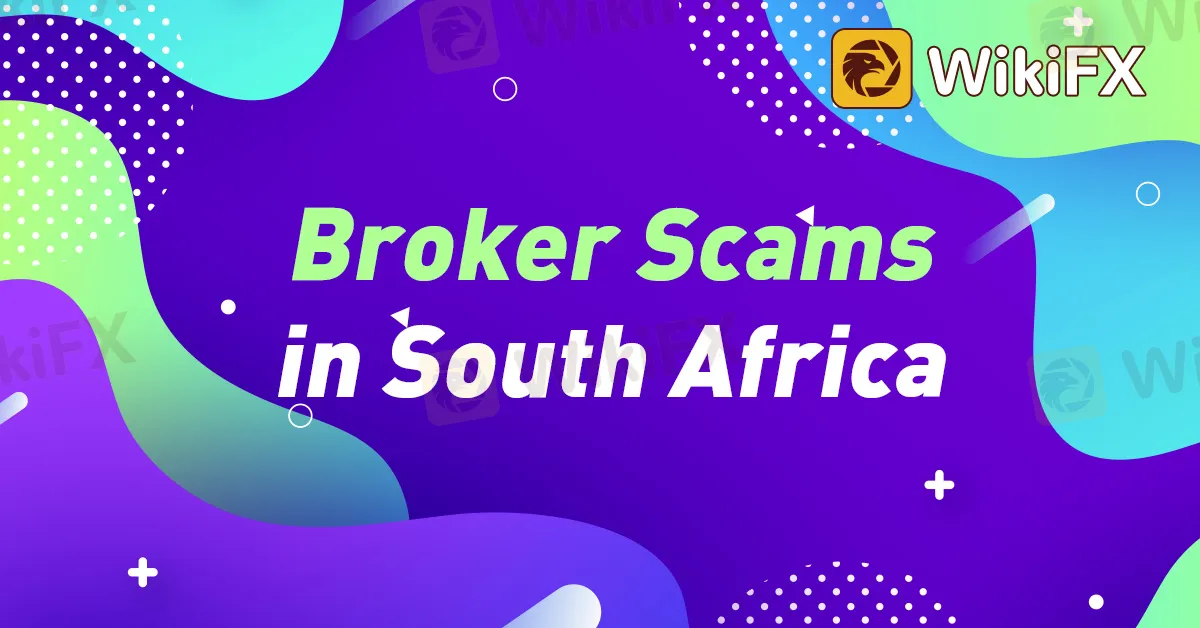简体中文
繁體中文
English
Pусский
日本語
ภาษาไทย
Tiếng Việt
Bahasa Indonesia
Español
हिन्दी
Filippiiniläinen
Français
Deutsch
Português
Türkçe
한국어
العربية
Broker Scams in South Africa
Abstract: In this article, we'll explore how brokers scam traders in South Africa and what you can do to protect yourself.

Trading in the financial markets can be an exciting and lucrative venture, but it can also be a breeding ground for scammers looking to exploit traders. Unfortunately, South Africa is no exception when it comes to broker scams. In this article, we'll explore how brokers scam traders in South Africa and what you can do to protect yourself.
One common tactic used by scammers is to offer unrealistic profits or bonuses to entice traders to sign up. They may also promise low spreads or zero commissions, only to later charge hidden fees or increase spreads to make up for the loss. Additionally, some brokers may manipulate prices or execute trades in their own favor, leading to losses for their clients.
Another tactic is to provide misleading information or withhold important details. For example, some brokers may claim to be regulated by reputable authorities, when in fact they are not. They may also hide information about their ownership or financial status, making it difficult for traders to determine their legitimacy.
To avoid falling victim to these scams, it's important to do your due diligence before choosing a broker. Research the broker's background and read reviews from other traders. Check if they are registered with relevant regulatory bodies, such as the Financial Sector Conduct Authority (FSCA) in South Africa.
One resource that can help you in your research is WikiFX. WikiFX is a leading platform that provides unbiased and comprehensive information on brokers worldwide. They have a team of professionals who conduct rigorous investigations and verifications to ensure the accuracy and reliability of their data.
On WikiFX, you can find detailed profiles of brokers, including their regulatory status, ownership, and trading conditions. You can also read reviews from other traders and compare different brokers based on their features and services. Additionally, WikiFX offers a range of educational resources, such as trading guides and market analysis, to help traders improve their skills and stay informed.
In conclusion, broker scams are a serious issue in South Africa and it's important to take steps to protect yourself. Be wary of unrealistic promises or hidden fees, and do your research before choosing a broker. Consider using resources like WikiFX to help you make informed decisions and avoid falling victim to scams. With the right knowledge and tools, you can navigate the financial markets with confidence and achieve your trading goals.
To find out more about WikiFX and their services, visit their website at www.wikifx.com.

Disclaimer:
The views in this article only represent the author's personal views, and do not constitute investment advice on this platform. This platform does not guarantee the accuracy, completeness and timeliness of the information in the article, and will not be liable for any loss caused by the use of or reliance on the information in the article.
Read more

Female Celebrity Voluntarily Surrenders Over SEC Violation Charges
Rufa Mae Quinto faces 14 counts of SEC violations linked to Dermacare's investment scheme. She denies fraud allegations and posts P1.7M bail.

RM5.9M Lost to "Davidson Kempner Capital Management" Facebook Scam
A private contractor in Malaysia faced a devastating loss of over RM5.9 million after falling victim to a fraudulent investment scheme promoted on Facebook. Tempted by the scheme’s impressive claims and credentials, the victim began investing in September 2024. The investment process required him to download an application called A-Trade, which was readily available on the Apple Store.

BI Apprehends Japanese Scam Leader in Manila
The Bureau of Immigration apprehended a Japanese scam leader in Manila for targeting elderly victims in Japan, with plans to investigate possible local operations.

Dutch Law Student Arrested for €4.5 Million Crypto Scam
Dutch police arrest a law student for a €4.5M crypto scam, exposing pyramid schemes and investor losses.
WikiFX Broker
Latest News
SQUARED FINANCIAL: Your Friend or Foe?
Big News! UK 30-Year Bond Yields Soar to 25-Year High!
High-Potential Investments: Top 10 Stocks to Watch in 2025
Why Is Nvidia Making Headlines Everywhere Today?
Discover How Your Trading Personality Shapes Success
US Dollar Insights: Key FX Trends You Need to Know
FINRA Charges UBS $1.1 Million for a Decade of False Trade Confirmations
BI Apprehends Japanese Scam Leader in Manila
Bitcoin in 2025: The Opportunities and Challenges Ahead
Join the Event & Level Up Your Forex Journey
Currency Calculator






